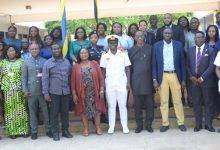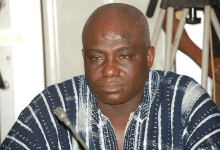There is some anxiety among ordinary Ghanaians as to the measures the government is expected to introduce in the mid-year budget review to continue the path of stabilisation of the economy and place it on the path of strong, diversified and resilient growth.
Generating the needed resources through taxation and other fiscal policy measures are key to building a resilient economy, much in line with the government policy Ghana Beyond Aid sustainable development agenda.
Boosting revenue mobilisation by strengthening tax administration, plugging revenue loopholes and leakages, and combating tax evasion, building reasonable levels of foreign reserves, maintaining a solid balance of payment position and maintaining overall stability of the Ghana cedi against currencies of major trading partners are key priorities of the government.
It is our expectation that the measures that the government plans to introduce must help to consolidate the relatively economic gains achieved in order to create more wealth and prosperity for the benefit of all.
The Trade Union Congress (TUC), Ghana, as the mouthpiece of Ghanaian workers, at the end of its General Council Meeting on June 28, among other concerns, expressed the need to effectively translate the gains in the macroeconomic management into real and visible improvements in the living conditions of Ghanaians.
“Indicators presented by the Ghana Statistical Service and the Economic Management Team suggest that the economy is growing and there is some relative macroeconomic stability. The figures show that inflation and fiscal deficit have been declining consistently; there is trade surplus, and the value of the Ghana Cedi has stabilised in terms of the major international currencies,” the TUC has noted.
The TUC, however, pointed out “We have pointed out time and again in our previous statements, the apparent good sets of macroeconomic statistics are not adequately and visibly reflecting in the lives of the majority of Ghanaians….the cost of living remain high, while the economy is growing, real wages are declining. No economy can grow on sustainability basis if real purchasing power keeps declining.”
“The people of Ghana are expecting that the improvement in the macroeconomic management, as shown by the macroeconomic indicators, should reflect visibly in their pockets and in their lives,” the TUC added.
The Ghanaian Times cannot agree more with the sentiments expressed by the TUC, and also humbly summit that the economy must be resilient enough to meet the aspiration of the ordinary Ghanaian.
There is growing inequalities in the country, evidently confirming that economic gains are only concentrated in few hands, at the expense of the majority.
We are aware of pro-poor policies and other social protection interventions, but how sustainable are these measures?
Under the Sustainable Development Goals, agenda 2030, for which Ghana is a chief advocate, we are expected to work hard towards achieving economic growth that will help translate into economic well-being and welfare of Ghanaians and to reduce inequality as much as possible.
It is refreshing that the Sustainable Development Goals Voluntary National Report showed that macroeconomic indicators including budget deficits, inflation and interest rates were declining, poverty has declined from 24 per cent to 23 per cent in 2017, and that trade balance recorded surpluses in 2017 and 2018, resulting in improved balance of payment terms.
The efforts of the economic management team



